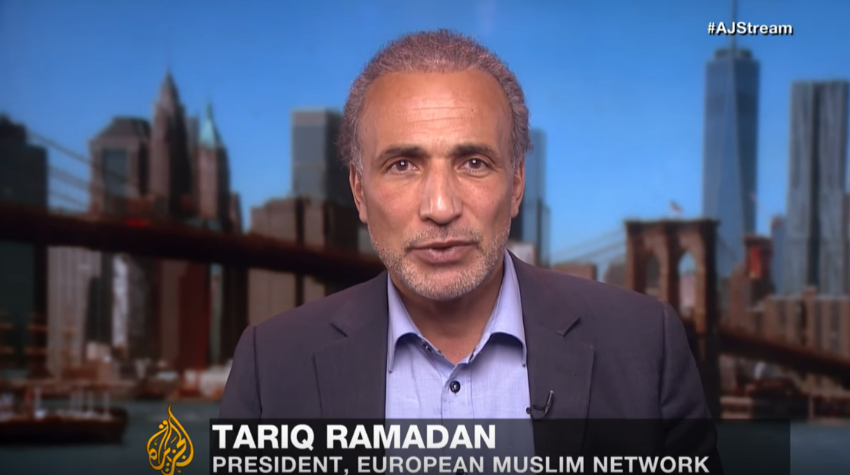News from Thursday, April 26, 2012“How Islamic is the Arab Spring?”
“How Islamic is the Arab Spring?” The Körber Foundation, the German-Arab Friendship Society (DAFG) and the Allianz Foundation Forum invited Tariq Ramadan, one of Europe’s leading Muslim intellectuals and currently Professor of Contemporary Islamic Studies at the University of Oxford, and Ruprecht Polenz, chairman of the Committee on Foreign Affairs of the German Parliament, to talk about this topic. The discussion was moderated by Jörg Lau, foreign policy expert and editor of the weekly newspaper DIE ZEIT.
In the context of the Arab Spring the participants unanimously agreed that the fundamental principles of democracy and the rule of law should constitute the basis for the new system of government in the Arab states that are currently in the midst of a transformation process. It was generally agreed that in the long term Western policy towards the region would only be an enduring success if it managed to reconcile values and interests. Thus when we look at the new political forces in the transformation countries it is important not to be swayed by sweeping generalizations. For example, the term “Islamist” is frequently applied to very different political movements such as the AKP in Turkey, the Muslim Brotherhoods in Egypt, and the various Salafist organizations. It is obviously important to differentiate more precisely.
The participants believed that the electoral success of Islamic parties in the transformation countries was primarily due to the fact that as a result of their opposition to the various dictatorships they had acquired certain structural advantages and above all credibility. Yet the high level of support for Salafist parties had come as a surprise, especially in view of the fact that in the past Salafists had tended to steer clear of politics.
The turmoil in the region had in fact been triggered by internet-savvy young people who did not have any leaders and cannot easily be pigeonholed as “secular” or “Islamic.” In the Arab world, unlike in the West, the term “secularism” always has negative connotations and is associated with the corrupt former regimes, which had tended to describe themselves as “secular.” Since the West had aided and abetted these autocratic governments, Western countries were often considered to be accomplices to the crimes committed by the dictators.



![PALEXPO : Democratic Engagement & Justice for Palestinians [08/07/2017]](https://tariqramadan.com/english/wp-content/uploads/sites/9/2017/07/Palexpo.png)
![Bristol Festival of Ideas : Conversation with Julian Baggini [24/05/2017]](https://tariqramadan.com/english/wp-content/uploads/sites/9/2017/06/bristol.png)
![Interview on BBC Radio Ulster [06/06/2017]](https://tariqramadan.com/english/wp-content/uploads/sites/9/2017/06/p03nnqlv.jpg)
![Interview on BBC 4 : What do the London attacks have to do with Islam? What is the Muslims’ responsibility?[06/06/2017]](https://tariqramadan.com/english/wp-content/uploads/sites/9/2017/06/bbc.jpg)

